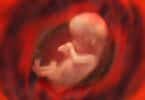Bottle fed babies are more likely to develop a kind of stomach obstruction than breastfed babies finds a new research. This stomach obstruction may also result in projectile vomiting and may not get better without surgery.
According to the study published in JAMA Pediatrics study’s lead author, Dr. Jarod McAteer, a surgery research fellow at Seattle Children’s Hospital says that the risk of stomach obstruction is increased even more in infants with older mothers.
The researcher still does not know why some babies develop the obstruction, known as hypertrophic pyloric stenosis but the study points some of the factors that increase the risk.
The stomach obstruction is caused in some infants when the one-way valve, or sphincter, that allows partially digested food to progress from the stomach to the small intestine stops functioning. It may happen when the muscle controlling the valve becomes too thick.
The researcher also added that babies are at risk only when they are between 3 to 6 weeks old.
“Usually in the first couple of weeks of life, they are completely normal, healthy babies,” he said. “Then they start vomiting and it progressively gets worse over a period of several days until they can’t hold anything down.”
For the research McAteer and his colleagues from the University of Washington compared 714 infants who developed hypertrophic pyloric stenosis to “control” babies who did not develop the obstruction.
Being male and first born are some of the previously known factors that can increase the risk of the stomach obstruction. The current research showed that bottle feeding too was a third factor.
In fact, bottle feeding was twice as common among babies with an obstruction, at 19.5 percent, compared with those in the control group (9.1 percent).
The researcher says that the problem can only be rectified with a surgery that cuts the muscle so that it will relax and allow the valve to open.
McAteer added that this study gives one more reason for mothers to breastfeed. He also says, however, that moms who have some medical reasons that does not let them breastfeed should not worry.
Among the general population, HPS occurs at a rate of about 1 in 1,000, McAteer said. The rate rises to 10 to 15 per 1,000 births when the mother is older and the baby is bottle fed.
“So it’s still very unlikely,” McAteer said.
The researchers believe that bottlefed babies get more food faster which may be a reason for developing the condition. Also infant formula itself may slow down the emptying of the stomach compared to breast milk and substances in breast milk may help relax the sphincter and aid in stomach emptying.
Dr. Stephen Shew, an associate professor of pediatric surgery at the University of California, Los Angeles, School of Medicine and the Mattel Children’s Hospital says that the study is important however it does not point that bottle feeding causes the obstruction, but one of the many factors that may increase the risk.
Researchers first got a hint that bottle feeding might be associated with HPS in the ’80s when increasing numbers of women turned from breastfeeding to bottle feeding and the rates of obstruction went up, Shew said.
He added, “this study is leading more credence to bottle feeding potentially being a factor.”







